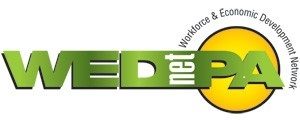Corporate College | Technical & Manufacturing
Contact Information
Marple Campus
Academic Building
Michelle Wallace
Director, Corporate College
Hours: Mon-Fri, 8:30 a.m.-5 p.m.
Phone: 610-355-7146
Email
Related Content
Employer Services
Training Dollars Available
Workforce Entry Center


Shop Math Refresher (12-30 hours)
Most of the skilled, manufacturing and advanced technology occupations require a strong base in basic mathematical knowledge. This class will focus on the areas of need after an evaluation is made by College which will determine content and length. Areas of remediation may include, but are not limited to, the following: fractions, basic geometry, Pythagorean Theorem, algebra and basic division and multiplication.
Print Reading and Shop Math for Fabricators (45 hours)
This course will demonstrate how to locate, interpret and utilize welding symbols, measurements, lines and other information found on working drawings, blueprints and technical documents. Students will be able to interpret technical drawings, sketches, blueprints as well as make measurements and calculations and then use those figures to accomplish fabrication requirements.
Intro to Welding Processes (45 hours)
Provides trainees with relevant theory in oxy-fuel welding and cutting, shielded metallic arc welding and their applications. Also discussed is proper selection of power sources and settings, welding electrodes, shielding gases, joint configuration and safety and welding procedures. This course includes a lecture period, followed by a practical application or lab exercise that demonstrates the topics presented.
Welding Codes & Specifications (45 hours)
Learn welding codes and their applications. Upon successful completion, students should be able to explain codes and their function, use welding specifications and apply proper use of API, AWS and AME codes.
Intro to Oxy-Fuel Welding & Cutting (45 hours)
Emphasis on fuel gases, welding and cutting equipment. Covers advantages and disadvantages of fuel gases; maintenance of oxy-fuel welding set; demonstrates lighting, adjusting and extinguishing an oxy-fuel flare; and using an oxy-fuel cutting torch.
CNC/Metalworking Basics (40 hours)
This hands-on program will focus on a series of single skill sets that are stackable for career success. You will prepare to sit for the National Institute for Metalworking Skills certification test. The program will cover these key skill areas: CNC mill, lathe and grinder set up and operation; tool identification, set up, use and maintenance; machine process; statistical process control; quality and cycle optimization; CNC program operation; fixture set up and operation; and CNC troubleshooting.
PLC Basics (40 hours)
Programmable Logic Controls (PCL) are an integral part of many devices, large and small. By the end of this course, the student will be able to create a PLC program from scratch. Students will learn the difference between digital and analog signals and how to bring them into a PLC, process them and send them back out. Students will also become familiarized with a sufficient variety of ladder logic instructions.
Process Control for Operators (320 hours)
Process control jobs are in high-demand, they鈥檙e high-paying and serve many industries, including energy, food processing and pharmaceutical manufacturing.
At 大发六合彩, we鈥檙e prepared to train you for one of these jobs. Our Process Operator Academy is 320 hours and can be completed in less than eight weeks. The program will help you transition or advance seamlessly into a career as a process operator or technician in automated manufacturing and production facilities.
The program provides students with an introduction to the concepts, theories, principles, technical demands, hazards and accident-prevention aspects associated with the operation of processing equipment.
Responsibilities of a Process Control Technician Include:
- Monitor control room functions of the delivery of products in an automated workflow聽
- Maintain equipment, including valves, fittings and pressure and measurement equipment
- Oversee the calibration of the equipment
- Ensure that the facility complies with state and EPA regulations
- Monitor the safety aspects of the equipment
Program Topics
- Pump Operations
- Plant Equipment
- Role of Process Technicians and Operators
- Safety, Health and Environmental Regulations, Standards and laws
- Emergency Response, Rescue and Warning Systems
- Input/Output Devices in a Process Environment
- Industrial Control Circuitry
- Safety/Rescue Training
- Processing Unit Operation
To schedule a class, please contact us at training@dccc.edu. Dates and times are flexible to meet your needs. Contact us for custom training opportunities at training@dccc.edu.








